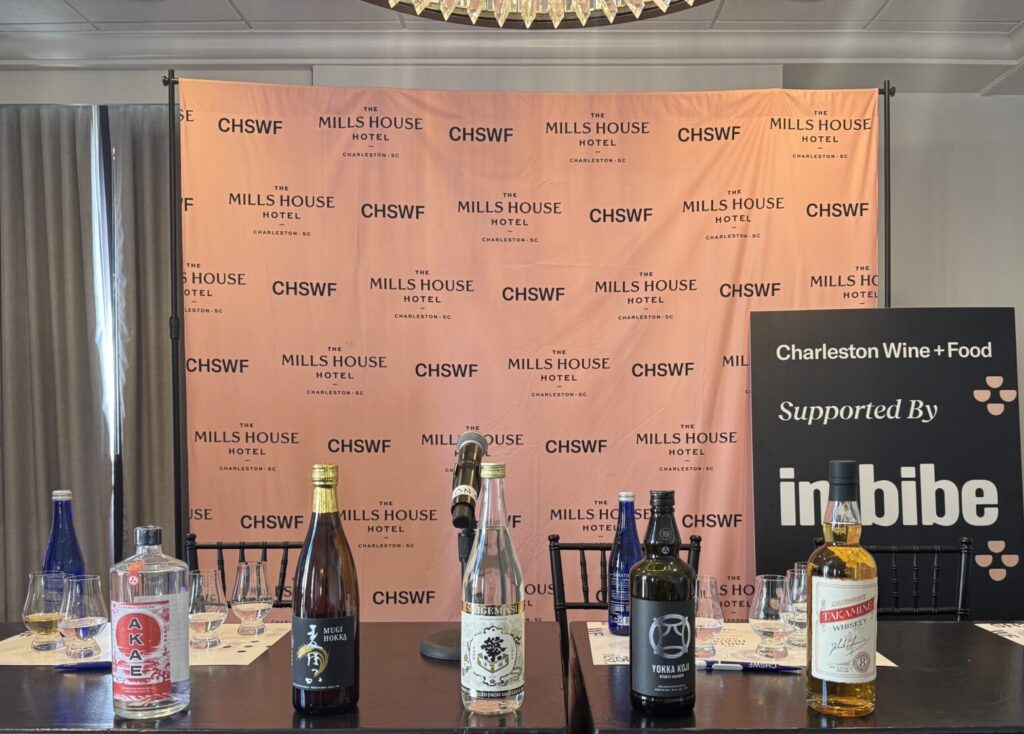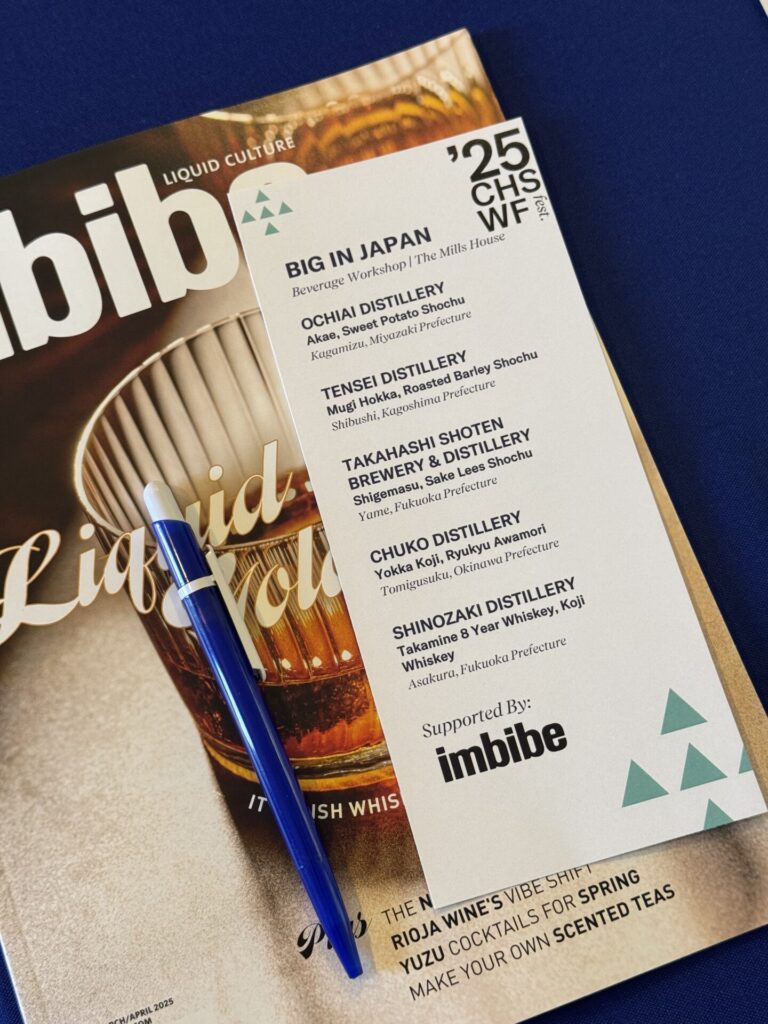INTRO
In episode 87, Stephen chats koji spirits in Charleston, South Carolina as a guest of Imbibe Magazine‘s editor in Chief, Paul Clarke (listen to episode 69 for more of his thoughts on Japanese spirits) and James Beard Award winning author, bartender, and bar owner, Julia Momose. The trio hosted a live panel discussion of koji spirits to a group of guests, most of whom had never tried shochu, awamori, or koji whiskey before.
CREDITS
Theme Song: Begin Anywhere by Tomoko Miyata (http://tomokomiyata.net/)
Mixing and Editing: Rich Pav (https://uncannyjapan.com/)
HOSTS
CHRISTOPHER PELLEGRINI Vermont born and bred, long-time Tokyo resident and author of The Shochu Handbook, Christopher learned about delicious fermentations as a beer brewer at Otter Creek (Middlebury, VT). He now spends most of his waking hours convincing strangers that shochu and awamori are unlike anything they’ve ever tried before.
STEPHEN LYMAN discovered Japan’s indigenous spirits at an izakaya in New York City. He was so enthralled that he now lives in Japan and works in a tiny craft shochu distillery every autumn. His first book, The Complete Guide to Japanese Drinks, was nominated for a 2020 James Beard Award.
Stephen Lyman and Christopher Pellegrini love speaking to live audience about these beautiful spirits.
If you have any comments or questions about this episode, please reach out to Stephen or Christopher via Instagram. We would love to hear from you.
SHOW NOTES
Charleston Wine & Food Festival
The Charleston Wine & Food Festival is the largest independent wine festival in the United States, with dozens of events featuring hundreds of chefs, restaurants, bartenders, and alcohol brands in Charleston, South Carolina, one of the most interesting cities in America to eat and drink. This year’s festival was March 5-8. Definitely worth checking in 2026 if you have the chance.

Imbibe Magazine does daily beverage alcohol seminars throughout the festival and this year Paul Clarke visited Stephen and Julia to come to Charleston to talk koji spirits in a community with very few Japanese restaurants. For most of the guests, they had never tried shochu before, let alone awamori or koji whiskey.
The discussion was lively and educational and the guests asked great questions. Have a listen to learn more.
What did People Try?

Akae Sweet Potato Shochu (25% ABV) Ochiai Distillery in Miyazaki. Rich, lightly filtered classic sweet potato expression.
Mugi Hokka Roasted Barley Shochu (25% ABV) Tensei Distillery in Kagoshima. Notes of coffee, dark chocolate, and toast. Rich and unctuous.
Shigemasu Sake Lees Shochu (30.5% ABV) Takahashi Shoten in Fukuoka. A vacuum distilled beauty with ginjo aroma character for days.
Yokka Koji Awamori (43% ABV) Chuko Distillery in Okinawa. An absolute shape shifter – can be used as a vodka, rum, tequila, or whisky replacement in cocktail applications.
Takamine 8 Year Koji Whiskey (40.3% ABV) Shinozaki Distillery in Fukuoka. The classic 100% barley koji whiskey that was featured in the NY Times in January.
Much more to Learn
This discussion just scratched the surface. Dig into Stephen and Christopher’s books to learn more or listen to back episodes of Japan Distilled.







